Will AI destroy us? Why do some novels not quite work despite having all the right ingredients? Can a bad title ruin a good book? These are just some of the questions prompted by my reading this month.
July took us away from Serbia again—we travelled south to visit friends in the mountains of North Macedonia (pictured below) and then continued to the Greek island of Crete. We lived here for a couple of years about a decade ago, so it’s been great to meet old friends and measure my age by the rapid growth of their children.

I’ve still found time for plenty of reading, though, including some contemporary literary fiction, a couple of classics, and some thought-provoking non-fiction. Here are the highlights.
Eclipse by John Banville
Even when the plot and characters of a John Banville novel don’t thrill me, his writing always does. Read my full review of Eclipse for some quotes to illustrate his beatiful prose style.
Our Final Invention: Artificial Intelligence and the End of the Human Era by James Barrat
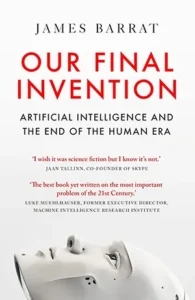
Does the title sound a bit melodramatic to you? It did to me too, but Barrat raises some very important questions here about the dangers of AI. He’s not talking about the large language models we have now, but about a truly conscious Artificial General Intelligence (AGI). He points out that if we create something that is not only superior to us in intelligence but can improve its own code to become more and more intelligent at lightning-fast speeds, it could quickly get out of control and threaten our survival. I’d like to write about this at more length soon—there’s a lot to think about here.
The only disappointment was that although the book was “published” in 2023, it’s actually a reissue of a much older book with a quick preface added now that the subject is popular again. I find this happens quite a bit in publishing, and it irritates me.
Our Missing Hearts by Celeste Ng
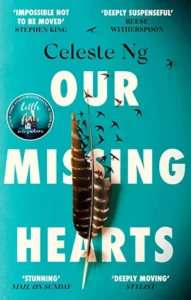
The premise of this one sounds great: a novel set in an American dystopia in which a severe economic crisis has led politicians to make a scapegoat out of China and stoke prejudice against Asian Americans. In the ensuing atmosphere of fear and distrust, children are taken away from “unfit” parents, and this novel tells the story of a child trying desperately to get reunited with his mother.
It’s got all the ingredients of a great read, and I loved Little Fires Everywhere by the same author, and yet somehow Our Missing Hearts didn’t really lift off for me. Although the dystopia sounds plausible enough, neither it or the characters felt particularly real to me. It wasn’t bad, but it wasn’t the treat I was expecting.
Milkman by Anna Burns
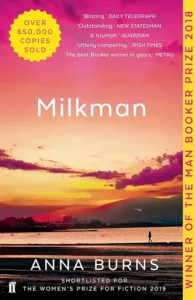
“The day Somebody McSomebody put a gun to my breast and called me a cat and threatened to shoot me was the same day the milkman died.” So begins Milkman by Anna Burns, and this Booker Prize winner goes on in the same odd, unique narrative voice to tell us about life in 1970s Belfast through the eyes of an 18-year-old girl. It was very fresh and different from anything I’ve read before, and I can see why it won the Booker.
Villette by Charlotte Bronte
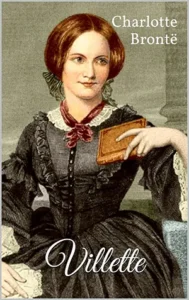
The narrator of Milkman is so appalled by current events that she refuses to read any literature from her century. Inspired by her and by my growing disgust at current events, I decided to plunge into a couple of long Bronte novels. Villette concerns a quiet, unassuming character called Lucy Snowe who at first seems to be a mere observer of other people’s lives but gradually comes to embark on adventures of her own and construct a life for herself. I enjoyed it, although it relies on some quite enormous coincidences which didn’t seem even remotely plausible to me (perhaps because I don’t share Bronte’s faith in God or the power of “Providence”).
The Tenant at Wildfell Hall by Anne Bronte

My second Bronte novel of the summer was a lesser-known but quite fascinating story by Anne Bronte about a mysterious young widow who suddenly starts living in an abandoned house on a lonely hilltop and sets the nearby community buzzing with rumour and speculation.
When the malicious gossip threatens her ability to stay there, she turns over her diary and we read the story of her marriage to a charming but abusive husband and her desperate attempts to escape it. It felt surprisingly modern and must have been quite shocking back in 1848. The only thing I didn’t like was the sharp division between saintly characters, who suffer at first but get rewarded later, and villains, who enjoy the upper hand but come to unpleasant ends.
A Short History of Humanity: How Migration Made Us Who We Are by Johannes Krause and Thomas Trappe
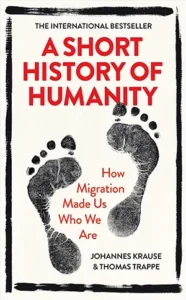
This was a fascinating tour of the emerging field of archaeogenetics: the study of ancient DNA to learn more about our ancestors. It’s full of fascinating insights about migration patterns and social developments even before the advent of recorded history, but the title is all wrong. This is primarily a short history of Europe, not of humanity. Other regions of the world are mentioned, of course, but the European focus is so clear that it feels as if the authors wrote it with a European title in mind, and the “humanity” title was added later to make it more marketable. It annoyed me and distracted me from what was otherwise an excellent book.
What Do You Think?
Have you read any of these? Do any of them sound interesting to you? What did you read this month? Let me know in the comments below.
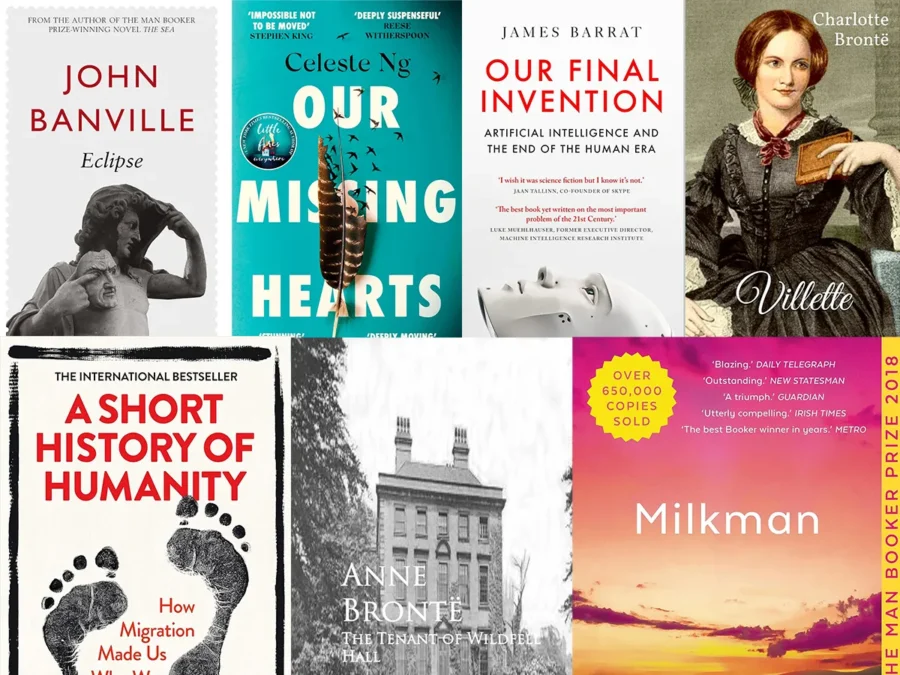
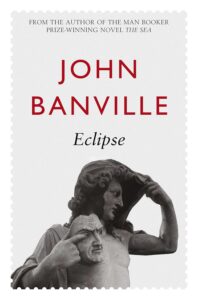



There are 4 comments
I’m not terribly worried about AGI because there’s not going to be the resources to make it happen.
Too bad about Our Missing Hearts, I really enjoyed that one. And Tenant of Wildfell Hall, read that one long enough ago that all the details are fuzzy. I more or less enjoyed it. Sometimes you want a book where the villains get what’s coming to them since it happens so infrequently IRL, but the suffering saintly, especially when they are women, and the generally always are, make me twitchy.
Great months of reading, and glad you were able to travel and visit with friends!
True, it is VERY resource-intensive. But a lot of big tech companies are pouring huge resources into trying to create AGI, and with computing power becoming so much faster and cheaper every year, that equation could shift quickly.
To be honest, it was quite satisfying to see the villains get their comeuppance, but I think it was the extremeness of their villainy and the pure saintliness of the good characters that felt a little unreal to me. I think most of us have a bit of both in us, and I like to see some of that complexity in fictional characters too.
I loved The Tenant of Wildfell Hall when I read it. I was 15 and the neat and tidy moral universe would doubtless have appealed a great deal to me! I also loved Little Fires Everywhere, but don’t really read dystopian novels so haven’t downloaded this one. As for AI, you really need to talk to Mr Litlove, who is much more knowledgeable and up with the debate. I have a stubborn belief in human creativity at its lowest levels surpassing anything a machine can do, no matter how complex. But if you’re asking will we overprize technology, and force it to do things beyond its natural capacities, thus making daily life that bit more chaotic for us all, then yes, for sure. I do love a book roundup and am so impressed by all your travels.
Sorry for the late reply – I’ve been having trouble with comments on the site. I also enjoyed The Tenant of Wildfell Hall, despite the tidiness of the moral universe. There was still an appeal to me now in seeing the villains punished and the good rewarded, but it didn’t feel entirely true.
I think you’re right about human creativity staying ahead of machines, but what worries me is not so much their ability to be creative as their ability to “iterate” in tech-speak, i.e. repeat actions millions of times in the blink of an eye, comparing endless scenarios and choosing the likeliest winner. It’s that kind of brute-force approach that enabled computers to beat chess grand masters years ago, and it’s a similar approach that enables them to sound convincing in today’s AI chatbots. If a future AI system can learn to improve its own code, then it could amass vast capabilities before we even know what’s happening. Then it could do a lot of damage, without ever really being creative or intelligent in the way we understand the terms.